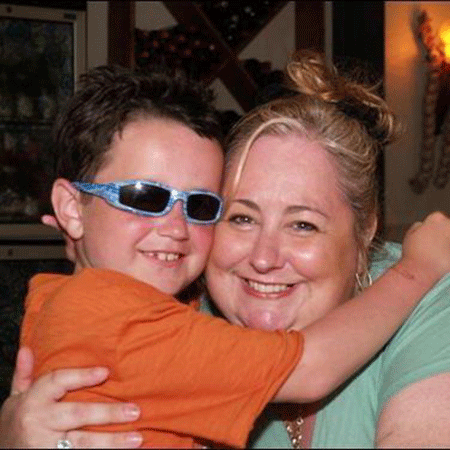Almost nine in ten UK families say their disabled child has experienced restraint, new research shows.
The research comes from the Challenging Behaviour Foundation (CBF) and Positive and Active Behaviour Support Scotland (PABSS).
And while the organisations found that nearly 88 per cent of families said their child had experienced restraint, around one in three families said it happened regularly.

Beth Morrison, pictured with her son. She said new findings on restraint and seclusion should trigger action to end the “appalling treatment of vulnerable children”
The survey also found that almost three in four families (71 per cent) believe their disabled child had experienced seclusion – confining them in a room by themselves. One in five (21 per cent) said this happened daily.
Restraint and seclusion happening in school
Most families said the restraint and seclusion was happening in school. They also said it resulted in significant physical and emotional impacts.
Up to 58 per cent of families said their child had suffered restraint injuries. And 91 per cent reported a negative emotional impact.
But families maintain that incidents often go unrecorded, with just 19 per cent documented.
Training for staff
Vivien Cooper is the CBF’s chief executive.
She said the UK government must “take steps to understand the scale of the problem, invest in positive behaviour support training for staff and trauma support for families and improve accountability at all levels”.
Beth Morrison is the chief executive of PABSS.
She started a campaign in 2015 for national guidance in Scotland on seclusion and restraint.
Morrison and a group of other parents claimed their children were abused at school.
‘Appalling treatment’
She said the research “should be the start of real action to end this appalling treatment of vulnerable children”.
A spokesperson for the Department for Education in England said it recently invested £10m “to help schools share best practice and knowledge in order to support good behaviour in schools”.
A Scottish government spokesperson said restraint and isolation should only be used “as a last resort, when in the best interests of the child and never for disciplinary purposes”.
The survey research was based on 204 respondents and 566 case studies.
Related:
- Protest at chill-out room reforms
- Scots take seclusion fight to parliament
- Chill-out rooms in the legal spotlight
Published: 4 February 2019

















